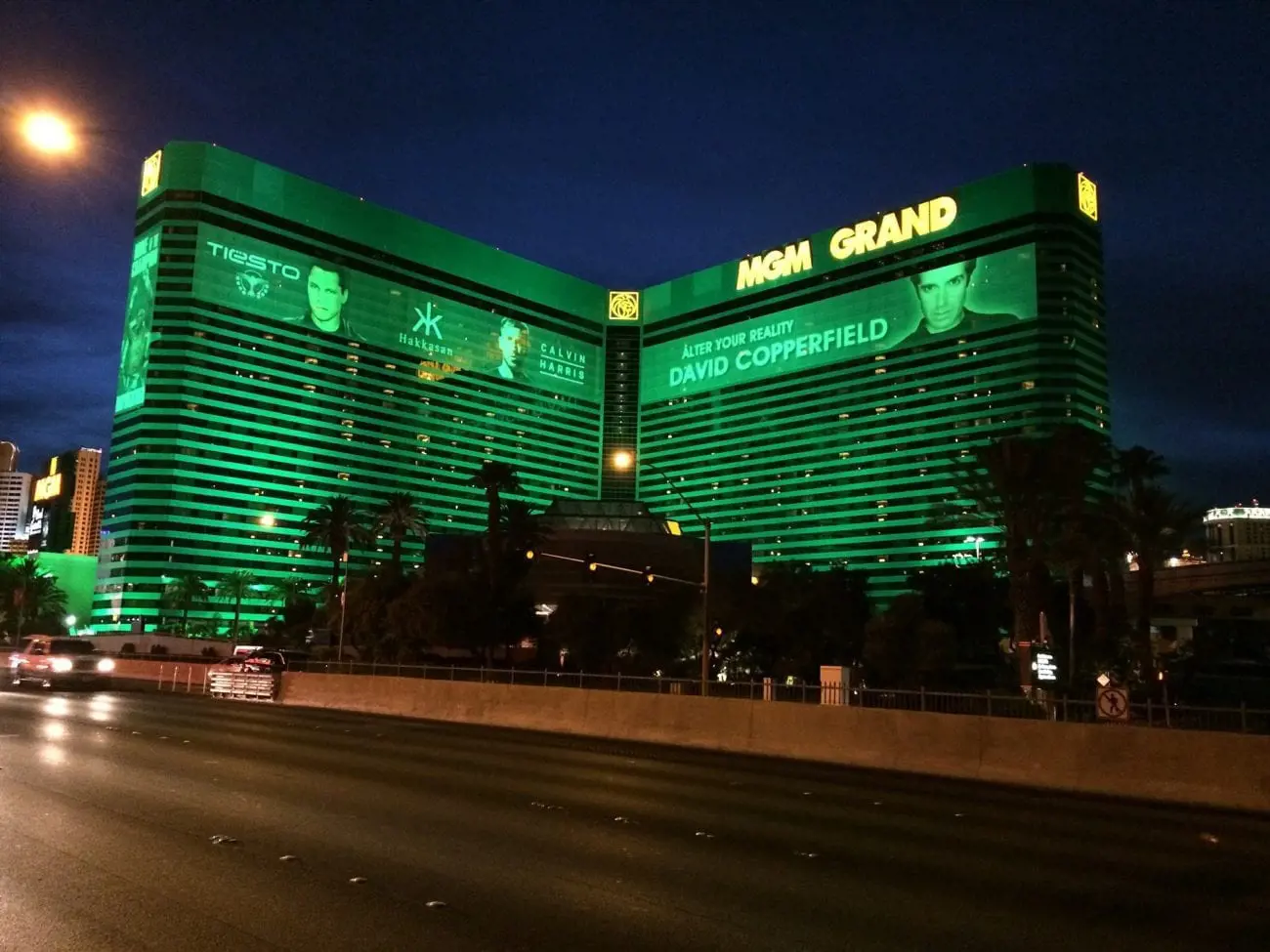Hornbuckle hints at further global expansion as MGM revenue hits $6.12bn in H1
MGM Resorts chief executive Bill Hornbuckle suggested the business may look to expand further into new territories after its deal to acquire LeoVegas closes, after acquisitions of the Cosmopolitan and Aria helped revenue grow 56.3% in H1.

The operator only completed its $1.63bn acquisition of The Cosmopolitan in Las Vegas mid-May, but said that the integration of the property as part of its operations had a significant impact on its performance.
This, MGM said, was also true of the Aria, acquired in September 2021 through its purchase of Infinity World Development Corp's 50% interest in CityCenter Holdings for $2.12bn. CityCenter – a project from MGM and Infinity World – owns the CityCenter Las Vegas development, which includes the Aria resort, Vdara hotel and the residential Veer Towers.
Also towards the end of the half, MGM agreed to sell the operations of its Gold Strike Tunica land-based casino in Mississippi to Cherokee Nation Entertainment Gaming Holdings, a subsidiary of Cherokee Nation Businesses, for $450m.
Turning to digital, MGM in May agreed to acquire online gambling operator LeoVegas for approximately $607m to strengthen its online operations. Speaking in an earnings call, MGM president and chief executive Bill Hornbuckle said the deal is expected to complete in the third quarter of 2022.
“We believe, ultimately, the digitisation of our business and therefore, our ability to take brands through omnichannel and otherwise and make something real of it is a real business,” Hornbuckle said.
“We are interested and want rest of world. LeoVegas has a talented management team, a cloud and mobile-based technology platform and an appreciable growth plan that we'll execute on as we develop our digital gaming presence in Europe.
In addition, he hinted that the business may take further steps to expand to new territories after the LeoVegas deal.
“We recognize it’s not as large-scale and therefore, needle moving as we might want over time. But we thought that it was a great place to start, and most importantly, we like the platform and the team.”
Acquisition-drive growth
Looking more closely at the group’s performance in the second quarter, revenue for the three months to June 30 was $3.26bn, up by 43.9% on the previous year.
Las Vegas Strip revenue, helped by The Cosmopolitan and Aria acquisitions, jumped 110.0% to $2.10bn, while regional operations revenue increased 12.2% to $960.0m. However, MGM China revenue fell 54.0% to $143.0m as a result of venue closures in Macau in line with local Covid-19 measures.
Breaking revenue down by product type, casinos brought in $1.35bn, up slightly, rooms revenue increased 112.3% to $774.7m, food and beverage revenue hiked 123.9% to $677.8m and entertainment, retail and other revenue was up 135.6% to $445.3m.
Turning to costs, operating expenses were 60.4% lower at $827.9m, primarily due to a $2.28bn gain as MGM Growth Properties - the real estate investment trust that was previously part-owned by MGM Resorts - was sold to VICI.
MGM also noted a $55.6m loss from businesses where it holds a non-controlling stake, which included a $71.2m net loss from its BetMGM venture with Entain. However, even after accounting for this and a $186.0m in non-operating spend, pre-tax profit was $2.20bn, up 1,654.6% year-on-year.
Hornbuckle noted that BetMGM was second in the US incombined betting and online casino market share, with 21%. The net loss from BetMGM came on $608m worth of revenue, up 70% year-on-year.
This, Hornbuckle said, put the business “well on track to meet our forecast of $1.3 billion” for the whole year.
MGM paid $572.8m in tax and after accounting for income attributable to noncontrolling interests, the operator ended the quarter with a $1.78bn net profit, more than 17 times the total from H1 of 2022.
In addition, adjusted earnings before interest, tax, depreciation, amortisation and rent (EBITDAR) reached $919.7m
The strong Q2 performance had a positive impact on MGM’s first half, during which revenue was 54.3% higher at $6.12bn.
Operating expenses were 10.8% lower at $3.53bn, while MGM also noted a $102.4m loss from unconsolidated affiliates such as BetMGM and $362.9m in non-operating costs.
As such, pre-tax profit was $2.12bn, a stark contrast to the $305.5m loss posted at the same point in 2021. MGM paid $536.5m in tax, leaving a net profit attributable to the business of $1.77bn, compared to a $227.1m loss last year.
MGM also noted that adjusted EBITDAR for the six-month period stood at $1.59bn.
“We look to the future with optimism, as our convention and event calendar for the next year remain notably strong and BetMGM continues to be a market leader with a roadmap for growth,” Hornbuckle said.
“We remain focused on achieving our vision to be the world's premier gaming entertainment company.”